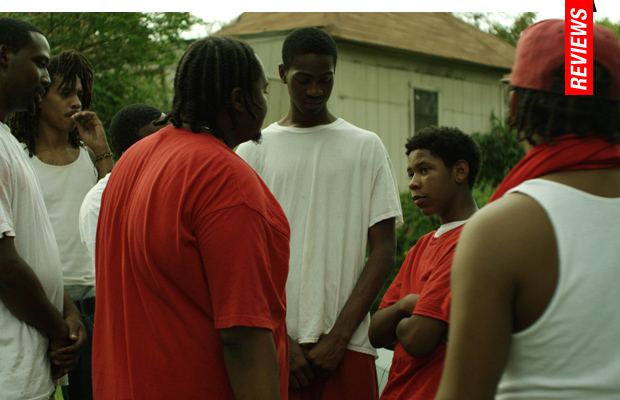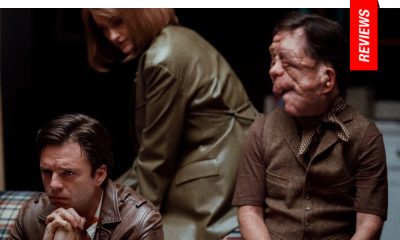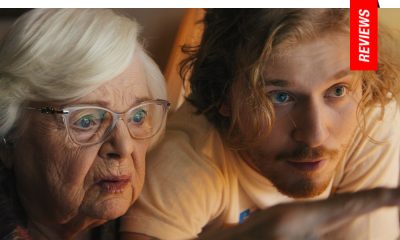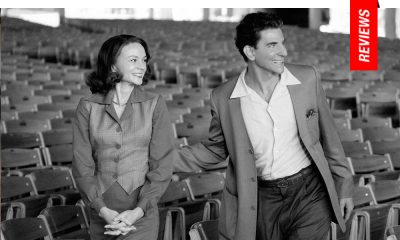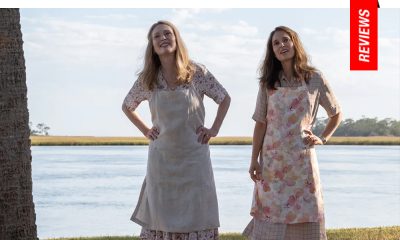Reviews
Dayveon | 2017 Sundance Film Festival Review
Thin Red Line: Abbasi Looks at Frame within the Portrait
While flesh lesions of the bullet wound type leave visible scares behind, within a certain socio-economic class, they nonchalantly serve as show and tell rights of passage. Comparatively, it’s the wounds that are below the surface that are intrinsically more difficult to diagnose. How far one succumbs to a pre-determined, almost conditioned generational existence is at the core of composer Amman Abbasi‘s assured, Neo-Americana directorial debut. Reminiscent of a film such as Ballast, Ramin Bahrani’s early works and a seminal film oeuvre from one of the producers backing the project (David Gordon Green’s George Washington), Dayveon aestheticizes troubled ravaged rural life with a portraiture that is sans artifice and congealed with a bravura of low-key performances.
Leading an ensemble cast comprised entirely of non-actors, pre-teen Devin Blackmon plays the titular role of Dayveon in a screenplay (co-written by Abbasi and co-producer Steven Reneau) that strolls somewhere between an internalized grieving process and the need for belonging. Here a rural Arkansas could stand-in for other disheveled parts of the United States that are dealt with moral decay, poverty and the reshuffled family structures, and yet this essay on the notion of brotherhood from both the gang life and adoptive big brother perspective doesn’t fetishize the down and out or the associated violence. Pairing aimlessness of summer days with the paralysis of an unknown future, not unlike the multiple references to a bee colony (these days we tend to reference them and their inevitable collapse), Abbasi guides his protagonist through darkened cramped nocturnal spaces and combines subtle notes of the indoctrination process alongside a more subdued yearning for the dearly departed. With repeat references to cellphone pics of his brother, the screenplay underlines that dual blood-lines do co-exist.
At times jarring and at other junctures adding a level of hostile intimacy, the 4:3 aspect ratio boxes in a non-suffocating manner and further roots the absence of tough love, the absence of parental support and a thirteen year-old being left to his own devices narrative. When a gun is introduced in the early stages, it allows for an accompanying malaise to seep into the fabric of one kind of survivalism refreshingly, but the heavy play with shadowing (specifically a burglary sequence) and the lightness of day enhances the difficult inevitable set of future choices.
Abbasi and first-time cinematographer Dustin Lane allow for stylistic florishes to seep in, but it’s the dimly lit interior day shots and nocturnal sequences that visually convey just how much effort is demanded in moving out the protag’s determined doctrine. The future is indeed nigh, but in a couple of fleeting moments and specifically in the film’s concluding, strongest sequence is the antithesis of what we come to expect from such fare: the dramatically surcharged, forceful message film. Like a visit to the planetarium, there is a soothing, genuinely rich quality found in Dayveon and it’s simplicity in design and sincere look into a society we rarely visit in film that rings louder than crickets, buzz-like and birdlike sounds that linger beyond the film’s resting point.
Reviewed on January 19th at the 2017 Sundance Film Festival – NEXT Programme. 75 Mins.
★★★/☆☆☆☆☆
Eric Lavallée is the founder, CEO, editor-in-chief, film journalist and critic at IONCINEMA.com (founded in 2000). Eric is a regular at Sundance, Cannes and TIFF. He has a BFA in Film Studies at the Mel Hoppenheim School of Cinema. In 2013 he served as a Narrative Competition Jury Member at the SXSW Film Festival. He was an associate producer on Mark Jackson's This Teacher (2018 LA Film Festival, 2018 BFI London). In 2022 he served as a New Flesh Comp for Best First Feature at the 2022 Fantasia Intl. Film Festival. Current top films for 2022 include Tár (Todd Field), All That Breathes (Shaunak Sen), Aftersun (Charlotte Wells).



